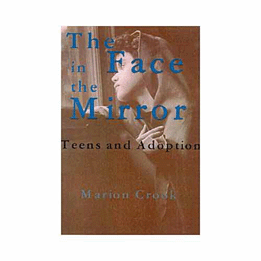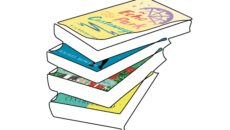Arsenal Pulp Press; 2002
Buy The Face in the Mirror: Teenagers and Adoption on Amazon.com >
The Face in the Mirror: Teenagers and Adoption by Marion Crook provides validation, straight from the mouths of adopted teens, that kids sometimes really do believe they somehow caused their birth parents to place them for adoption; that they really wonder what their birth parents’ decision means about themselves; and that they really do wonder about their birth parents, even while loving the parents and family they have.
Before writing The Face in the Mirror: Teenagers and Adoption, Crook, an adoptive parent herself, interviewed approximately 50 adopted teens placed during infancy and growing up in Canada. The chance to listen to teens tell what they really think and feel about adoption, their adoptive parents, and their birth parents makes this book truly worthwhile. Crook’s passion for hearing the teens out and making their experiences known is clear, especially at the opening of the book, where the writing sings.
Overall, The Face in the Mirror is informative and accurate, with three important exceptions, which I feel must be noted. First, while discussing the importance of parents’ supporting their children’s search for their birth parents, Crook does not warn parents against initiating the search themselves or taking the lead on it, either of which teens frequently interpret as a sign that their parents really want to send them back to their birth parents. Second, in one brief discussion, Crook leaves the impression that it is perfectly normal if a child of color adopted into a white family does not realize he or she is of another race until well into the teen years. Reading this section, I had to wonder if the racial climate in Canada is all that different from in the United States, where such a late understanding could set up the young person for multiple difficulties. Finally, Crook neglects to mention that the struggles adopted teens have figuring out why their birth parents chose not to parent them do not appear suddenly in adolescence, but rather in the early elementary school years. Being aware of this, parents can help their children much earlier and lessen the struggles of adolescence.
In sum, the stories the young people tell make The Face in the Mirror well worth reading for both parents and teens (not to mention professionals). I only wish we could have heard even more from them.



